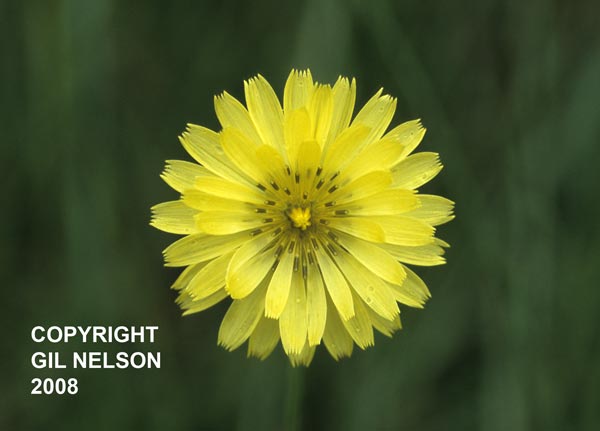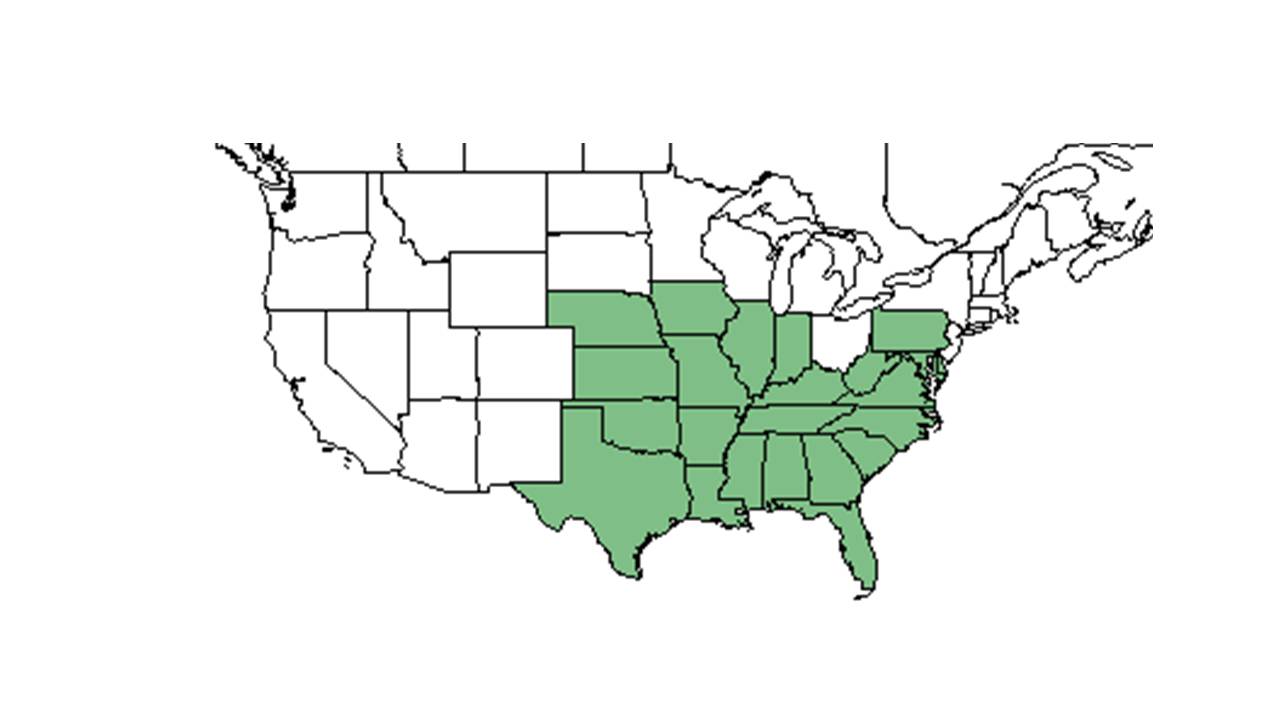Difference between revisions of "Pyrrhopappus carolinianus"
(→Description) |
(→Distribution) |
||
| Line 22: | Line 22: | ||
==Distribution== | ==Distribution== | ||
| − | + | It is found on roadsides, dry fields, disturbed sites, and bottomlands. ''P. carolinianus'' is a native plant with weedy tendencies (Nelson 2005). | |
==Ecology== | ==Ecology== | ||
Revision as of 17:47, 10 July 2015
| Pyrrhopappus carolinianus | |
|---|---|

| |
| Photo taken by Gil Nelson | |
| Scientific classification | |
| Kingdom: | Plantae |
| Division: | Magnoliophyta – Flowering plants |
| Class: | Magnoliopsida – Dicotyledons |
| Order: | Asterales |
| Family: | Asteraceae ⁄ Compositae |
| Genus: | Pyrrhopappus |
| Species: | P. carolinianus |
| Binomial name | |
| Pyrrhopappus carolinianus (Walter) DC. | |

| |
| Natural range of Pyrrhopappus carolinianus from USDA NRCS Plants Database. | |
Contents
Description
Common name: Carolina desert-chicory
Distribution
It is found on roadsides, dry fields, disturbed sites, and bottomlands. P. carolinianus is a native plant with weedy tendencies (Nelson 2005).
Ecology
Habitat
Phenology
Blooms from July to November (Nelson 2005).
Seed dispersal
Seed bank and germination
Fire ecology
Pollination
Use by animals
Diseases and parasites
Conservation and Management
Cultivation and restoration
Photo Gallery
References and notes
Nelson, Gil. East Gulf Coastal Plain. a Field Guide to the Wildflowers of the East Gulf Coastal Plain, including Southwest Georgia, Northwest Florida, Southern Alabama, Southern Mississippi, and Parts of Southeastern Louisiana. Guilford, CT: Falcon, 2005. 173. Print.